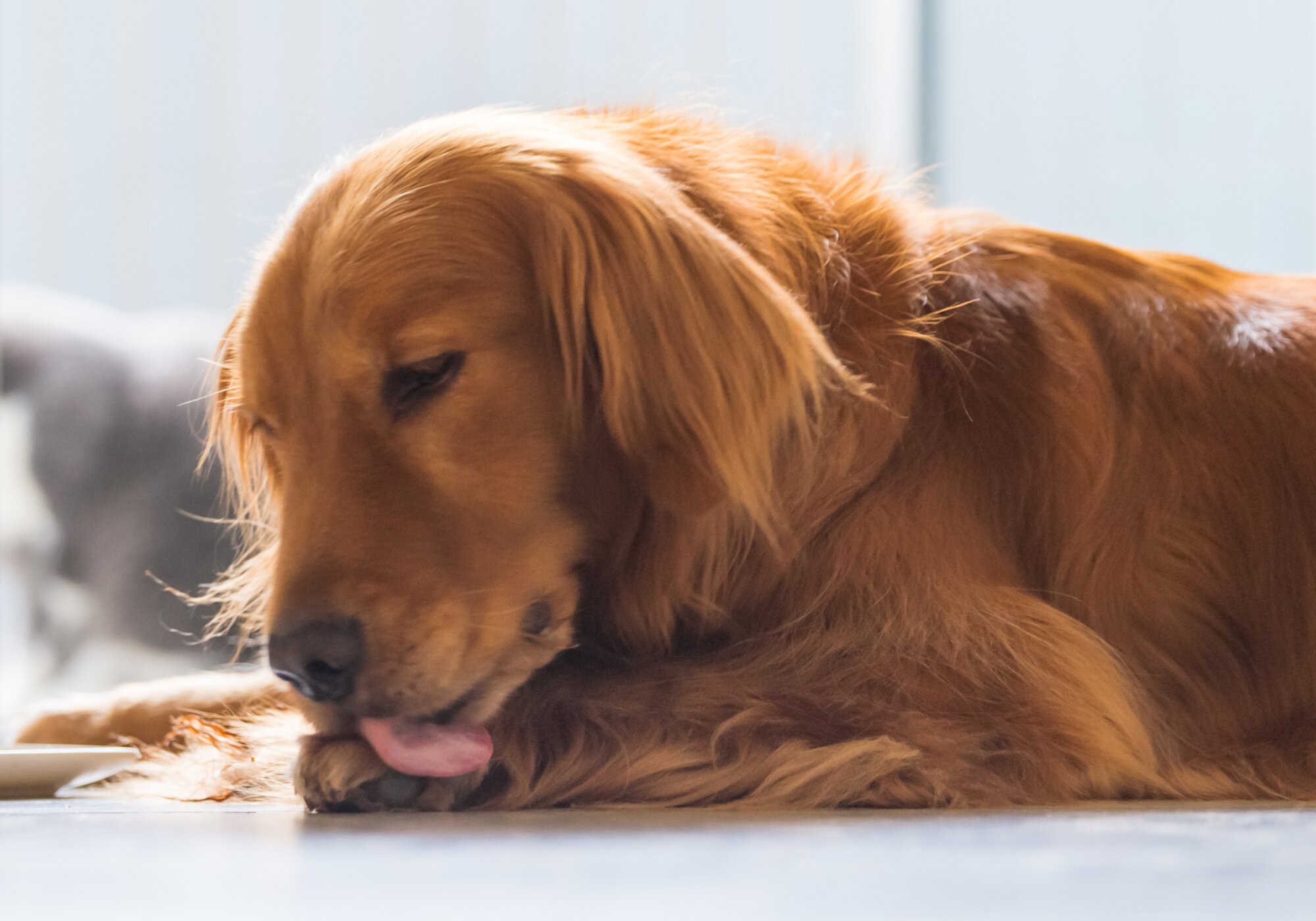Noticing your dog licking their paws more than usual can be worrisome for pet parents. You may be wondering, "Why do dogs lick their paws?"
If your dog licks their paws occasionally, it may be a sign of self-grooming or boredom. But, constant paw licking can be a sign of a more serious health condition.
In this article, we'll cover:
- Why dogs lick their paws
- 11 causes of excessive licking
- Solutions for a dog licking their paws
Why do dogs lick their paws
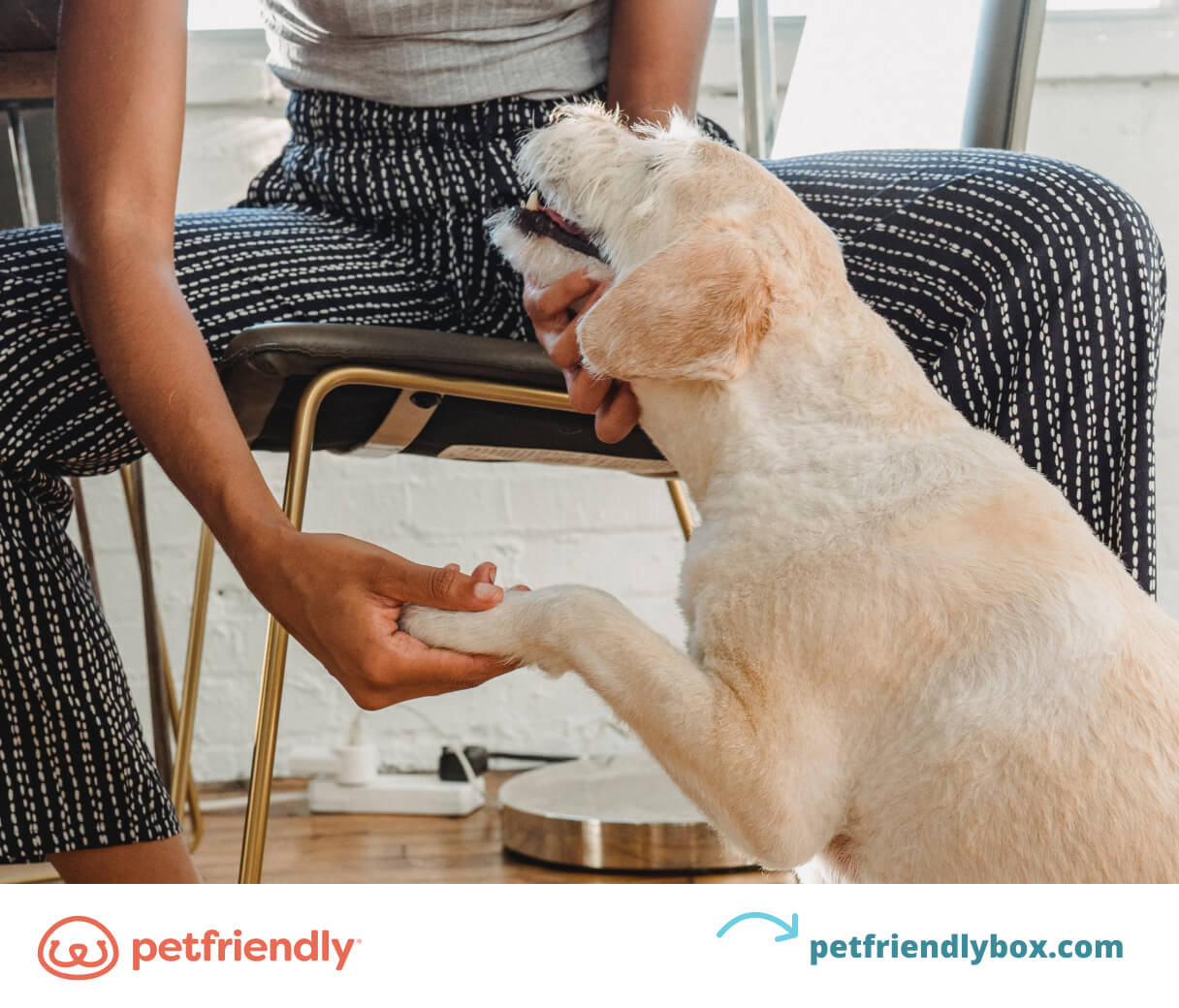
Licking is a soothing action for dogs. It releases dopamine and endorphins that can help your dog relax.
Occasional paw licking is not something pet parents should worry about. But, if your dog has aggressive licking behavior or is constantly licking their paws, their itchy skin may be a sign of a potential health problem or behavioral issue.
11 causes and solutions for excessive paw licking

There are several reasons why dogs lick their paws. And, occasional licking is normal for our furry friends.
But, if your pup starts licking their paws constantly, there may be an underlying health concern to address. From skin irritation to an allergen in your dog's food, there are plenty of reasons why your dog has itchy paws.
Here are 11 causes for a dog licking their paws and solutions for each.
1. Self-grooming
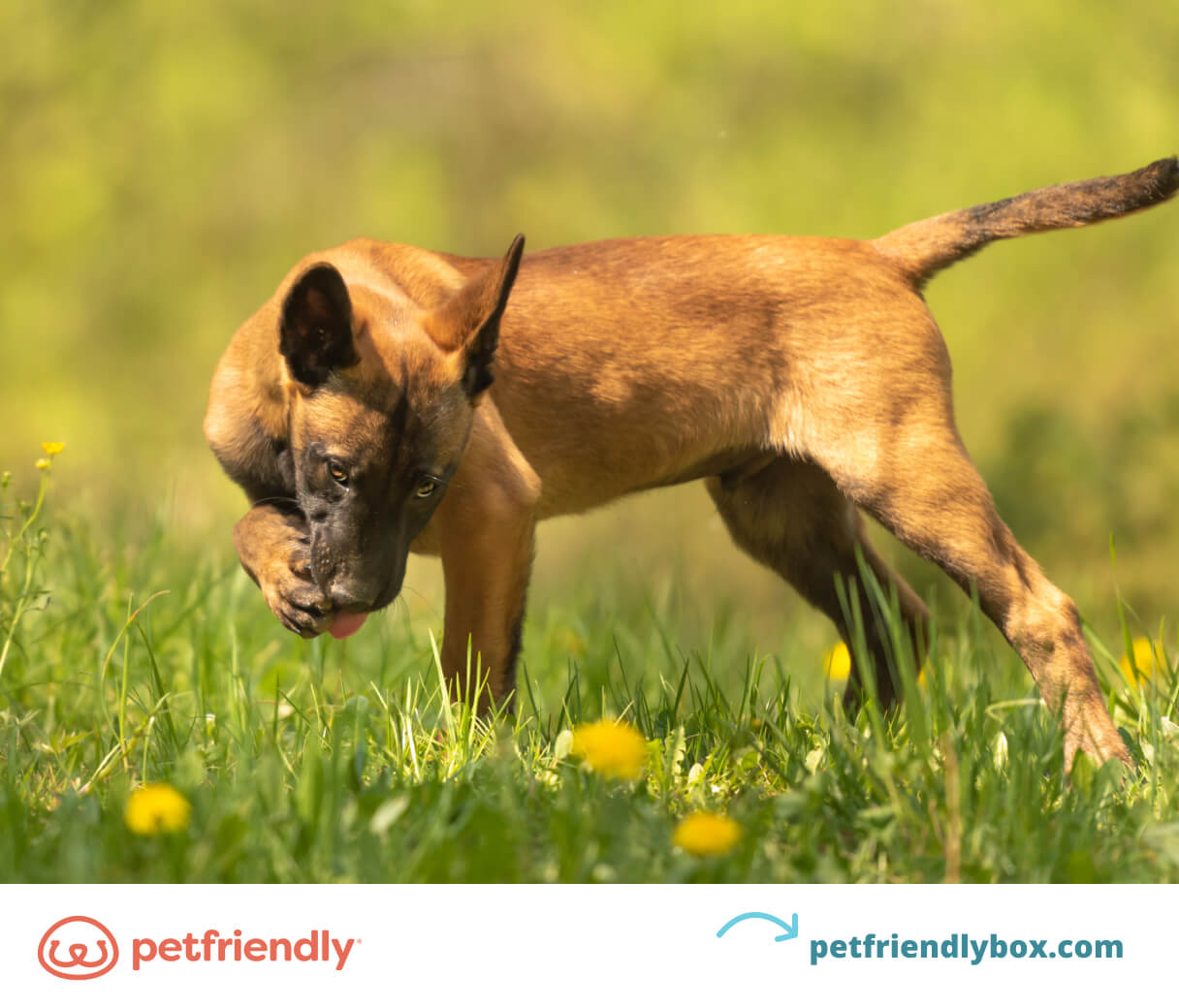
Like cats, dogs regularly lick their paws and other areas of their body to clean themselves. After walks outside or playing in the yard, it's normal for your pup to occasionally lick their paws to clean up any dirt or debris.
Paw licking for grooming and cleaning is normal for many dogs. But, if your dog begins licking their paws excessively, it may be a sign of a more serious health problem.
SOLUTION
To limit paw licking after outdoor activity, clean your dog's paws with warm, soapy water and a wash rag. The cleaner you can keep your dog’s paws, the less they will need to self-groom.
2. Boredom

Dogs are pack animals and love to play. When you leave your dog alone, they may feel bored or stressed. In turn, a dog may lick their paws to self-soothe and entertain themselves.
SOLUTION
To deal with boredom, try keeping your pup busy with an activity. Pet parents can provide enrichment for their dog through simulating toys, exercise, and quality time.
3. Anxiety

Some dogs experience separation anxiety and general anxiety. Plus, some breeds are more prone to anxiety than others. Dogs may resort to licking their paws excessively as a way to calm themselves down.
SOLUTION
If you believe anxiety is the reason for your dog's paw-licking, there are plenty of options for treatment. Talk to an animal behaviorist about their pet's condition. Or, try calming products like diffusers or treats to keep your dog calm.
4. Behavioral issues
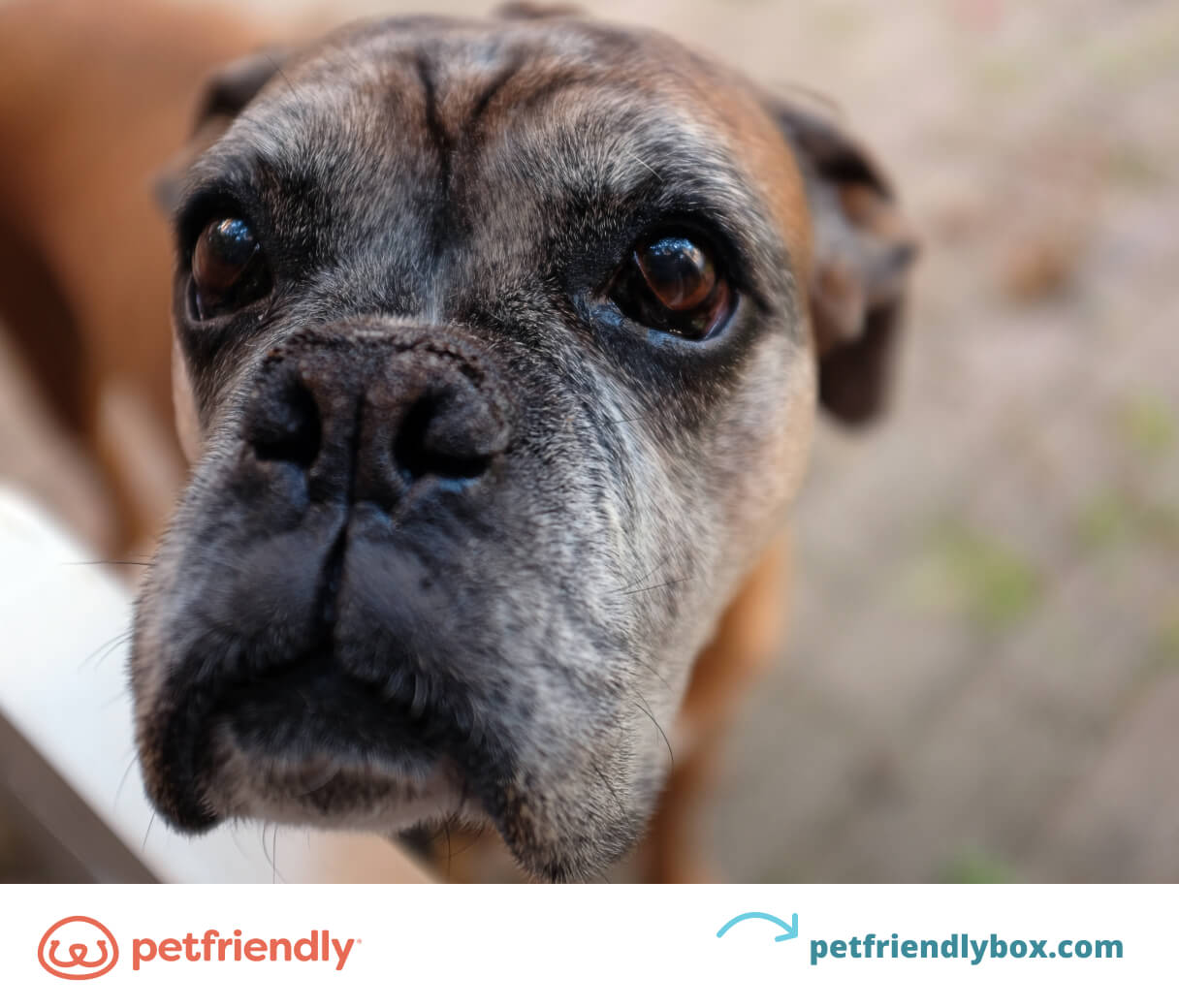
A behavioral issue like compulsive behavior may be the trigger for a dog constantly licking their paws. Dogs can develop compulsive behaviors like licking for many reasons. Some common reasons include:
- Lack of mental stimulation
- Anxiety
- Frustration
- Lack of attention
SOLUTION
If you believe your dog's excessive licking is a compulsive behavior, talk to a dog trainer about how to correct the behavior. In the meantime, give your dog enrichment toys to discourage them from licking paws and keep them entertained.
5. Food allergies

Allergies occur when your dog's immune system has an inflammatory response to a substance. All dog breeds are susceptible to allergies. And, like humans, dogs can suffer from different types of allergies.
Food allergies often cause skin irritation in dogs. And, food allergies can be tricky to diagnose. When your dog has an allergic reaction to certain foods, it may cause them to lick their paws more than usual.
SOLUTION
To treat a food allergy, your vet may suggest a special diet for your pup. Or, they may suggest you eliminate certain ingredients in your pet's diet.
6. Environmental allergies
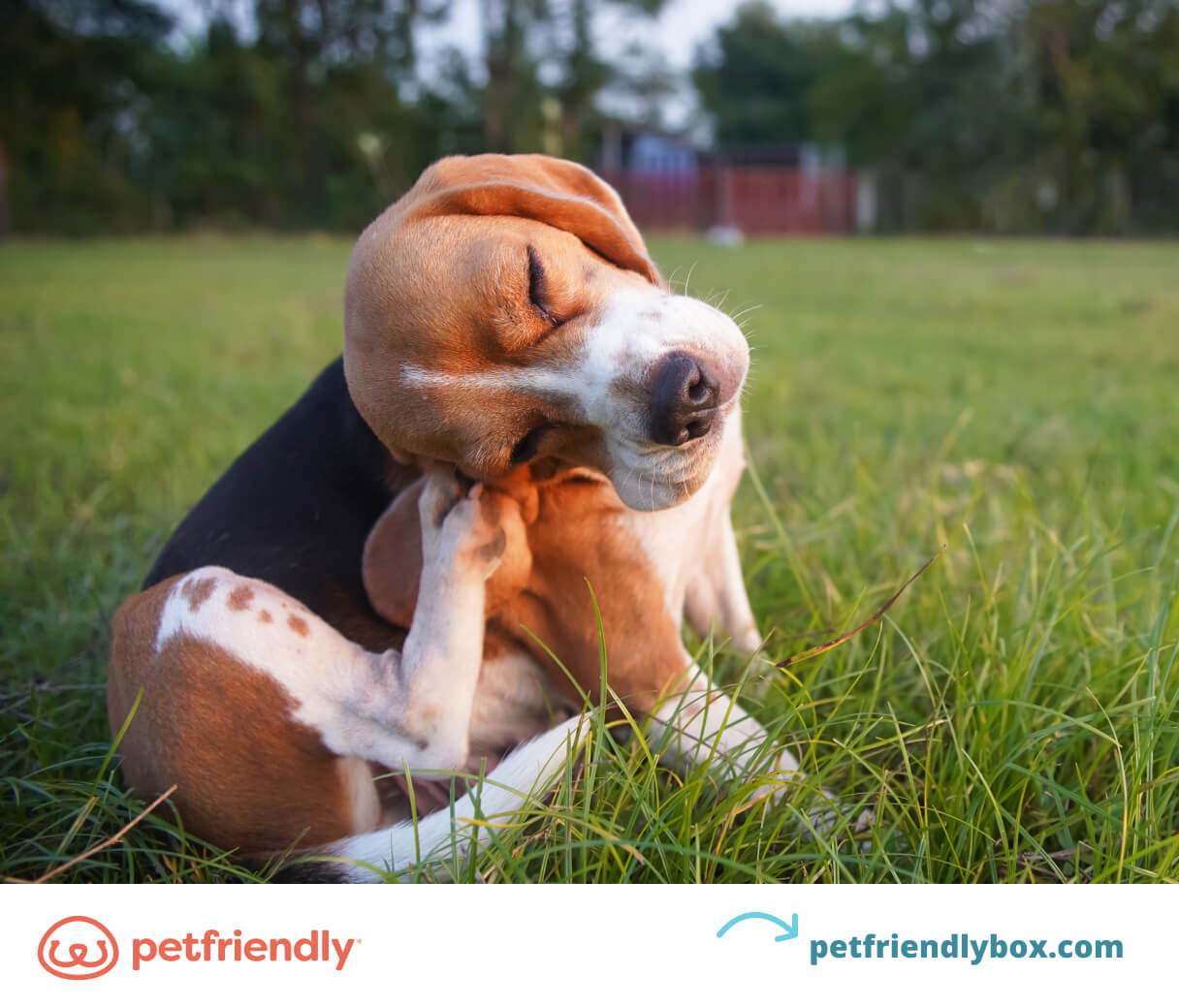
Sensitivity to grass, trees, and airborne substances is more common in dogs than you think. And, environmental allergies can irritate more than your dog's paws.
Some common symptoms of environmental allergies include:
- Flaky skin
- Runny nose
- Itchy throat
- Sneezing
SOLUTION
Treating an environmental allergy is relatively simple. First, you'll need to visit your vet for an allergy test to determine which environmental triggers your dog is sensitive to.
Your vet may suggest over-the-counter medicines to keep your pet comfortable. If your pet's allergies are more serious, they may prescribe a prescription allergy medication or allergy shots.
7. Flea allergies

Flea allergy dermatitis, the most common cause of allergic reactions in dogs, occurs when fleas bite your dog. This irritates your dog's skin and frequent itching and scratching.
Aside from itchy skin, flea allergy dermatitis can also cause dogs to lick their paws excessively.
SOLUTION
Dog parents should protect their dog with topical flea and tick protection every month. Learn about flea & tick prevention »
While flea and tick protection will not stop an active allergic reaction, it will prevent fleas from biting your furry friend in the first place. If your dog's itching and licking do not improve after applying flea treatment, inspect your home for any active infestations.
8. Digestive issues

Constant licking is a sign of discomfort, but it doesn't necessarily mean your pet's skin is irritated. Tummy troubles may be the source of your pet's discomfort.
Good gut health is important to maintain a healthy coat and skin. And, your dog's diet directly impacts how much your dog itches and licks.
Research shows that up to 80% of a dog's immune system lives in the gut. This means that if your dog's gut isn't healthy, their skin may not be either.
If your dog frequently licks their paws and has poor digestion, it may be a sign of a larger issue. Inflammatory bowel disease is a common gut health issue that can cause itching and licking in dogs.
SOLUTION
Adding a supplement or multivitamin to your pet's diet may boost their gut health. If your pup's condition is more serious, contact your veterinarian about what changes may be necessary in your pet's diet.
9. Bacterial and yeast infections

If your dog's paw licking has been an issue for a long time, your pup may be prone to secondary infections. Frequent licking builds moisture that can cause a bacterial or yeast infection.
Fungal and bacterial infections can lead to more itching, redness, and swelling. This means your dog's paw licking can get worse. And, if left untreated, yeast infections and other infections can negatively affect your dog's immune system.
SOLUTION
Antifungal creams or other antibiotics can help treat yeast infections, bacterial infections, and other secondary infections in dogs.
10. Pain

A dog experiencing pain may resort to frequent licking to comfort themselves. Hip and joint pain, arthritis, and hip dysplasia are common triggers of pain in dogs.
SOLUTION
To diagnose any of these conditions, you'll need to visit a doctor of veterinary medicine. Your vet will suggest options to help manage pain and reduce licking.
11. Injuries
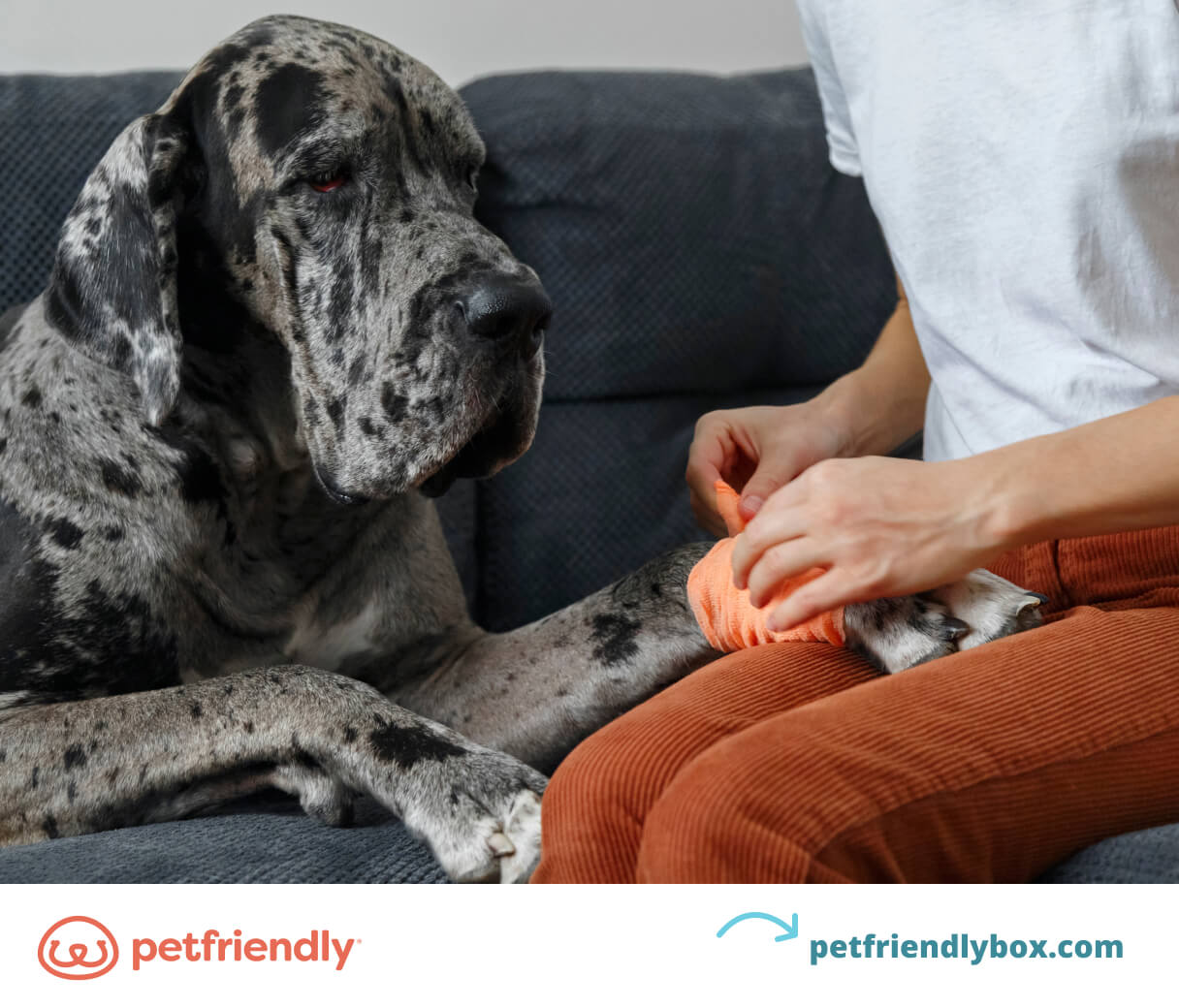
Constant paw licking, especially focusing on one paw, may be a sign of a paw pad injury. Some common injuries to your dog's paws include:
- Torn nails
- Ingrown nails
- Blisters from hot surfaces
- Cuts or scrapes
- Bee stings
- Insect bites
If your pet's paw licking starts suddenly and is focused on one paw, be sure to check your dog's paw pads for injury. Look closely at your pet's nails, paw pads, between your dog's toes, and on top of their feet.
SOLUTION
If you believe your pet has a paw injury but can't fix it yourself, schedule a vet visit to remove any foreign objects stuck in your dog's paws.
In the meantime, protect your dog's affected paw with dog boots or bandages from your pet first aid kit. And, keep your dog’s paw pads healthy with restorative balms and creams.
Don't fret right away if you see your pup licking their paws. Paw licking is a normal habit for dogs. But, if your dog starts licking and chewing their paws excessively, consider visiting your vet to address any potential health concerns.

